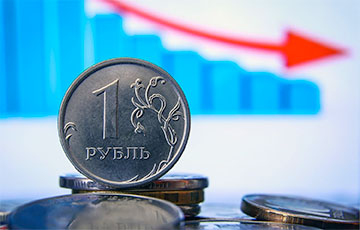Oil and Gas Revenues of the Russian Budget Drop by 20% for the Second
2- 3.04.2025, 14:33
- 2,858

Consecutive Month The situation, according to economists, is very sensitive. Forced discounts on Russian oil due to tightening U.S. sanctions and the sharp strengthening of the ruble have hit the raw material revenues of the budget, writes The Moscow Times.
In March, tax revenues from oil and gas fell by 17% year-on-year, amounting to 1.08 trillion rubles, reported the Ministry of Finance on Thursday. In monetary terms, compared to March 2024, the treasury missed out on about 230 billion rubles, which account for one-third of the government’s income. The decline in raw material rents by almost 20% has been recorded for the second month in a row, and the cumulative result for January-March shows a 10% decrease in oil and gas revenues, down to 2.64 trillion rubles. “The situation is sensitive. These are significant losses that will need to be covered either by additional borrowing or using the National Welfare Fund (NWF), which now has a small amount left,” notes Sofia Donets, chief economist at T-Investments. According to her estimates, the budget may lose up to 2 trillion rubles in oil and gas taxes this year—around 18% of the planned amount (10.9 trillion rubles). The government’s headache is the prices of oil and the ruble exchange rate: a barrel of Urals crude is priced under $60, although the budget assumed $70. At the same time, the ruble has dropped to 84 per dollar, instead of the 96.5 rubles originally projected by the government. As a result, the ruble price of oil—a critical parameter for the budget—has fallen to its lowest point since the summer of 2023 and is nearly 30% lower than the government's projections. "A strong ruble is a joy for Russians but a pain for the budget. We receive oil and gas revenues in foreign currency, which are then converted into rubles. The stronger the ruble, the fewer rubles exporters receive in the end," reminds investment banker and professor at the Higher School of Economics, Evgeny Kogan.
To cover the budget gap, which has already exceeded the annual plan threefold for January–February, the government will likely need to devalue the ruble. It is currently overvalued by 20%, and gradually, by the end of the year, the exchange rate is expected to return to 100-105 rubles per dollar, according to Donets. The reserves available to cover the lost income are dwindling. The National Welfare Fund, which had been built up over the years through resource surplus revenues, has lost two-thirds of its liquid assets over three years of war: the fund now holds just under $40 billion—its lowest level since its creation in 2008. The NWF reserves will be enough for a year if Urals oil remains above $50, according to economist Olga Belenskaya of Finam. "It is important how much the prices will fall and how long they will stay at low levels," she emphasizes. With oil prices below $50, the Ministry of Finance will likely have to initiate budget sequestration, i.e., cut specific spending items, analysts from MMI have warned.










